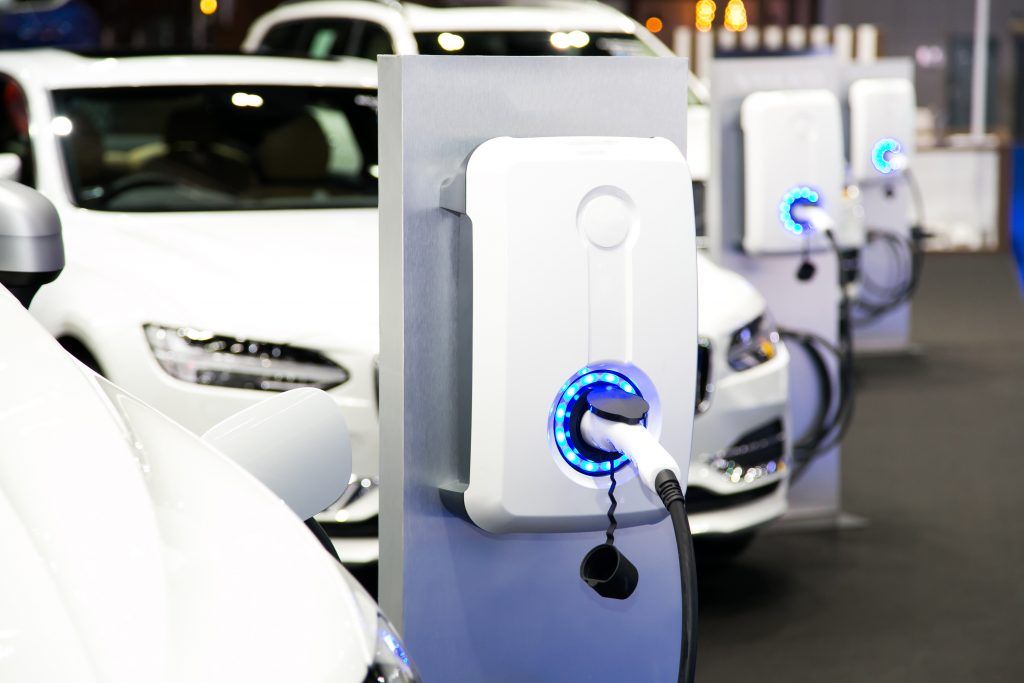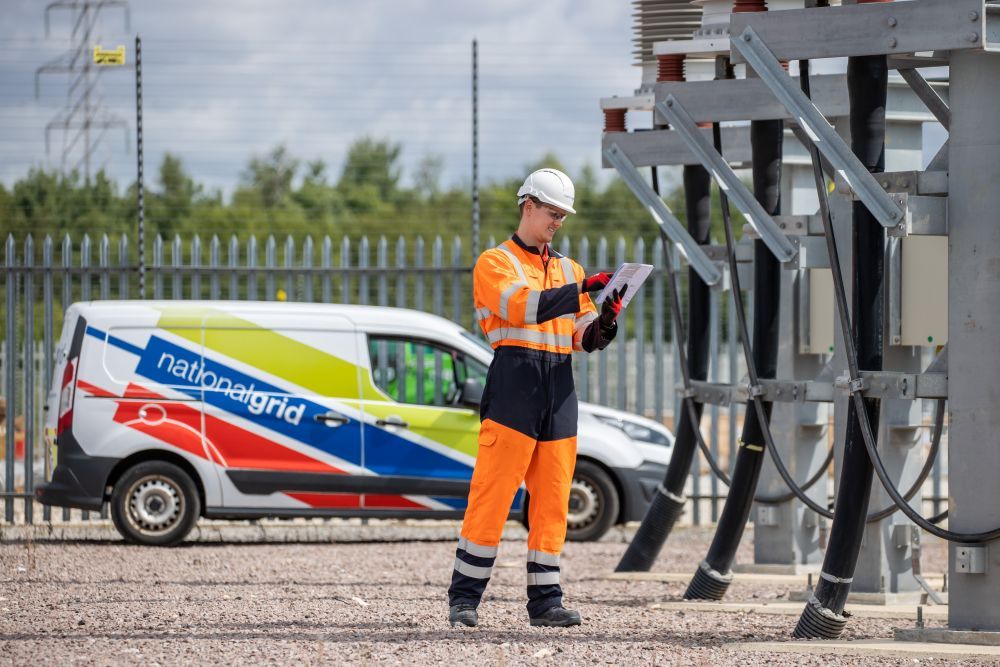The Government’s Net Zero Strategy includes the announcement of an extra £350 million to support the electrification of UK vehicles and another £620m for targeted electric vehicle grants and infrastructure, particularly local on-street residential charge points.
There are also plans to introduce a zero emission vehicle mandate, setting targets for a percentage of manufacturers’ new car and van sales to be zero emission each year from 2024. This will deliver on the 2030 commitment to end the sale of new petrol and diesel cars, and 2035 commitment that all cars must be fully zero emissions capable.
Building on the £1.9bn from Spending Review 2020, the Government has committed an additional £620m to support the transition to electric vehicles.
The additional funding will support the rollout of charging infrastructure, with a particular focus on local on street residential charging, and targeted plug-in vehicle grants.
Overall, the strategy sets out how the UK will secure 440,000 well-paid jobs and unlock £90 billion in investment in 2030 on its path to ending its contribution to climate change by 2050 and has been unveiled by the UK government today (19 October).
Building on the Prime Minister’s 10 Point Plan, the UK Net Zero Strategy sets out a comprehensive economy-wide plan for how British businesses and consumers will be supported in making the transition to clean energy and green technology – lowering the Britain’s reliance on fossil fuels by investing in sustainable clean energy in the UK, reducing the risk of high and volatile prices in the future, and strengthening the country’s energy security.
According to the Government, the commitments made will unlock up to £90 billion of private investment by 2030, and support 440,000 well-paid jobs in green industries in 2030. This will provide certainty to businesses to support the UK in gaining a competitive edge in the latest low carbon technologies – from heat pumps to electric vehicles – and in developing thriving green industries in the UK’s industrial heartlands – from carbon capture to hydrogen, backed by new funding.
As part of the strategy, new investment announced today includes:
- An extra £350 million of the Government’s up to £1 billion commitment to support the electrification of UK vehicles and their supply chains and another £620 million for targeted electric vehicle grants and infrastructure, particularly local on-street residential charge points, with plans to put thousands more zero emission cars and vans onto UK roads through a zero emission vehicle mandate
- Kick-starting the commercialisation of sustainable aviation fuel (SAF) made from sustainable materials such as everyday household waste, flue gases from industry, carbon captured from the atmosphere and excess electricity, which produce over 70% fewer carbon emissions than traditional jet fuel on a lifecycle basis. The Government is aiming to enable the delivery of 10% SAF by 2030 and we will be supporting UK industry with £180 million in funding to support the development of UK SAF plants
- £140 million Industrial and Hydrogen Revenue Support scheme to accelerate industrial carbon capture and hydrogen, bridging the gap between industrial energy costs from gas and hydrogen and helping green hydrogen projects get off the ground. Two carbon capture clusters – Hynet Cluster in North West England and North Wales and the East Coast Cluster in Teesside and the Humber – will put the UK’s industrial heartlands at the forefront of this technology in the 2020s and revitalise industries in the North Sea – backed by the government’s £1 billion in support
- An extra £500 million towards innovation projects to develop the green technologies of the future, bringing the total funding for net zero research and innovation to at least £1.5 billion.
- £3.9 billion of new funding for decarbonising heat and buildings, including the new £450 million 3-year Boiler Upgrade Scheme, so homes and buildings are warmer, cheaper to heat and cleaner to run
- £124 million boost to Nature for Climate Fund helping the country towards meeting commitments to restore approximately 280,000 hectares of peat in England by 2050 and treble woodland creation in England to meet commitments to create at least 30,000 hectares of woodland per year across the UK by the end of this parliament
- £120 million towards the development of nuclear projects through the Future Nuclear Enabling Fund.
The policies and spending brought forward in the Net Zero Strategy mean that since the Ten Point Plan, the Government have mobilised £26 billion of government capital investment for the green industrial revolution.
As the first major economy to commit in law to net zero by 2050 and hosts of the historic UN COP26 climate summit, the UK is leading international efforts and setting the bar for countries around the world to follow. The UK has hit every carbon budget to date – today’s Net Zero Strategy sets out clear policies and proposals for meeting our fourth and fifth carbon budgets, and keeps us on track for carbon budget 6, our ambitious Nationally Determined Contribution (NDC), while setting out a vision for a decarbonised economy in 2050.
Prime Minister Boris Johnson said: “The UK’s path to ending our contribution to climate change will be paved with well-paid jobs, billions in investment and thriving green industries – powering our green industrial revolution across the country.
“By moving first and taking bold action, we will build a defining competitive edge in electric vehicles, offshore wind, carbon capture technology and more, whilst supporting people and businesses along the way.
“With the major climate summit COP26 just around the corner, our strategy sets the example for other countries to build back greener too as we lead the charge towards global net zero.”
Business and Energy Secretary Kwasi Kwarteng said: “There is a global race to develop new green technology, kick-start new industries and attract private investment. The countries that capture the benefits of this global green industrial revolution will enjoy unrivalled growth and prosperity for decades to come – and it’s our job to ensure the UK is fighting fit.
“Today’s plan will not only unlock billions of pounds of investment to boost the UK’s competitive advantage in green technologies, but will create thousands of jobs in new, future-proof industries – clearly demonstrating that going green and economic growth go hand in hand.”
Transport Secretary Grant Shapps said: “We’re going further and faster than ever to tackle climate change. Together with an additional £620 million to support vehicle grants and charging infrastructure, our plans for an ambitious zero emission vehicle mandate show that we’re leading the world on the switch to EVs.
“We published our Transport Decarbonisation Plan in July which was just the start – as we look ahead to the COP26 climate change conference and beyond, we need to continue our efforts to deliver its ambitious commitments. This will provide certainty to drivers and industry as we create sustainable economic growth, boost job opportunities and clean up the air in our towns and cities.
“Not only this – by boosting our world-leading sustainable aviation fuels programme with £180 million in funding, we can accelerate the development of sustainable aviation fuel plants in the UK and create thousands of green jobs across the country.”
Both the Net Zero and Heat and Building Strategies build on the Prime Minister’s Ten Point Plan in November 2020 which laid the foundations for a green industrial revolution, kick-starting billions of pounds of investment in new and green industries to help level up the country. To date, the UK has decarbonised faster than any other G7 country.
Published alongside these two strategies is HM Treasury’s Net Zero Review, an analytical report which explores the key issues as the UK decarbonises. It helps to build a picture of where opportunities could arise and the factors to be taken into account when designing decarbonisation policy.
More industry reaction here.
Image courtesy of Shutterstock.











